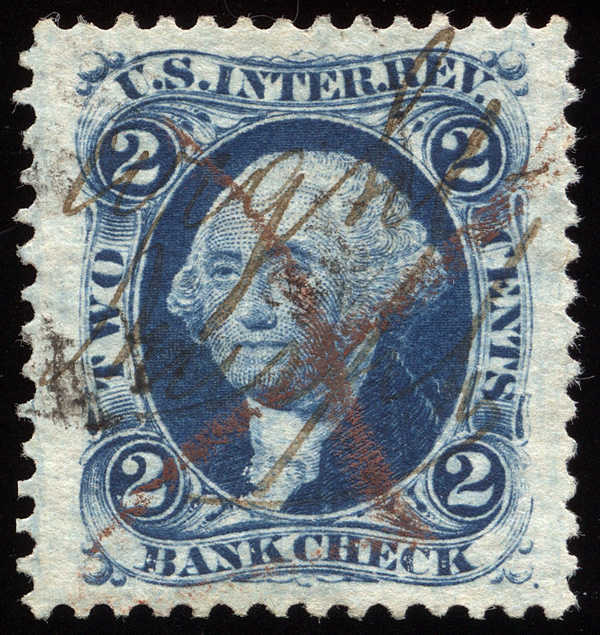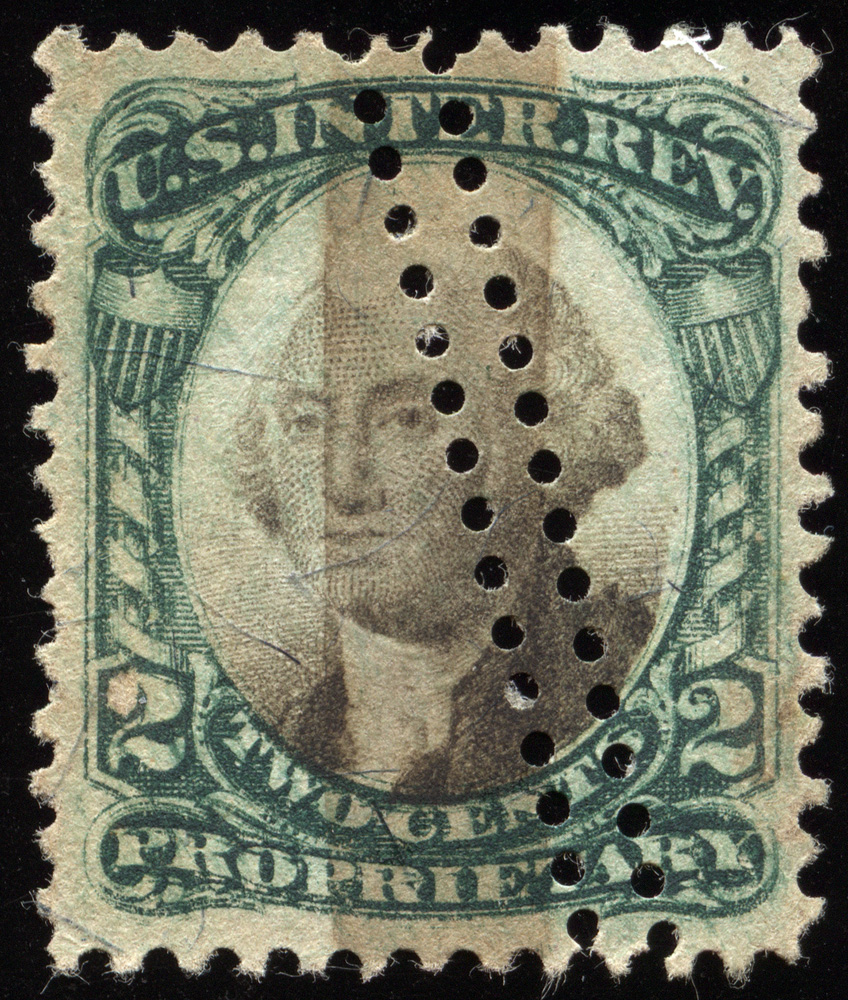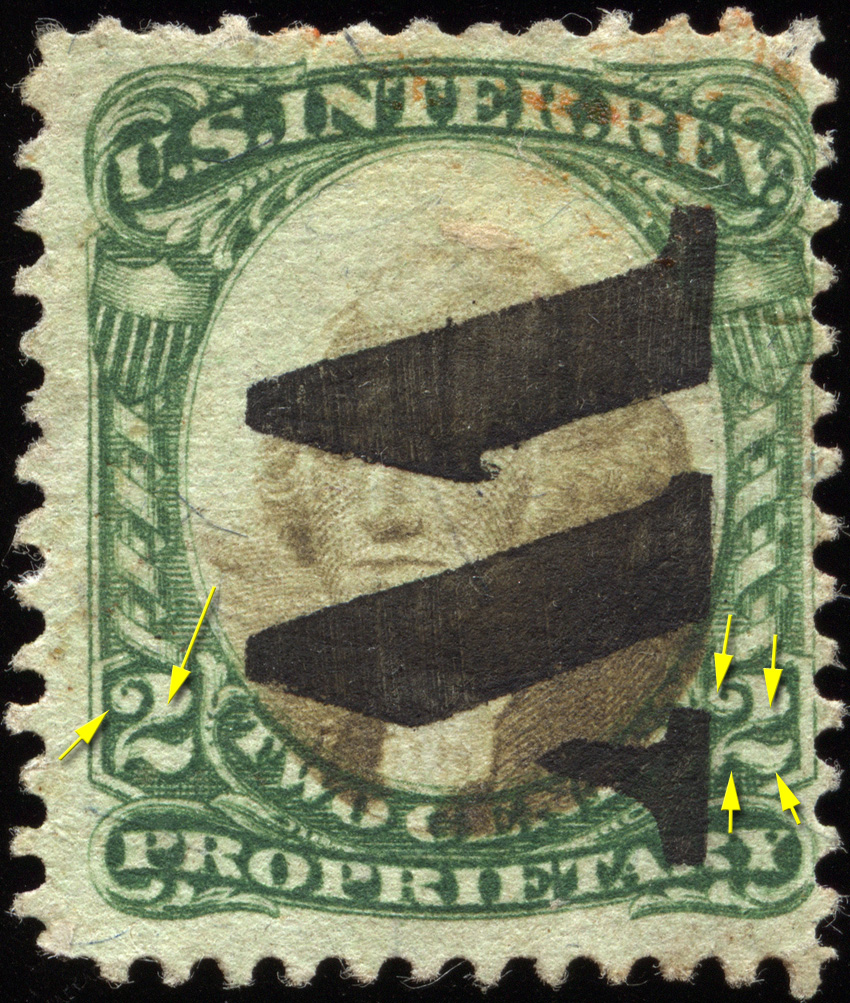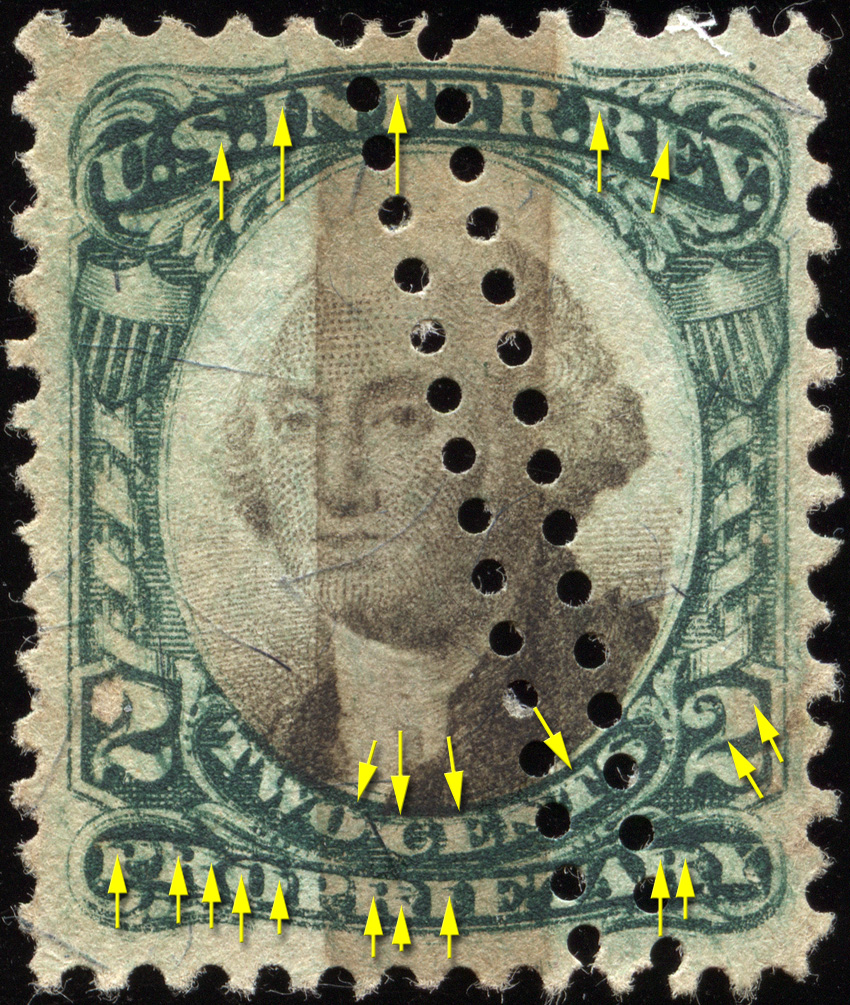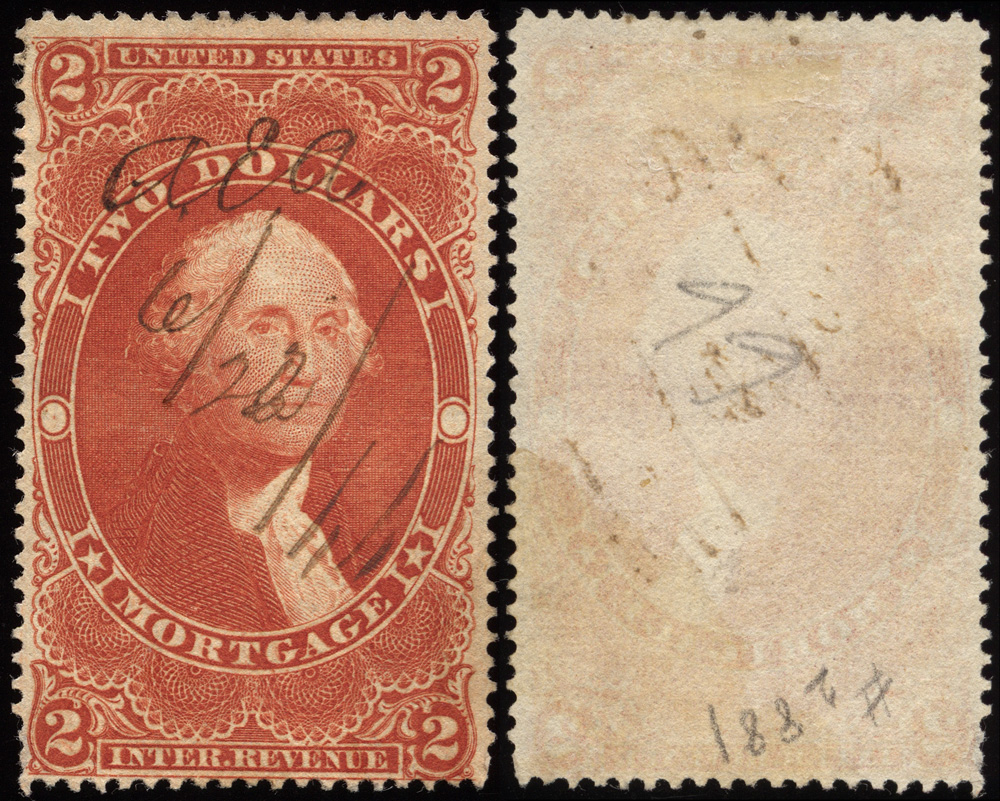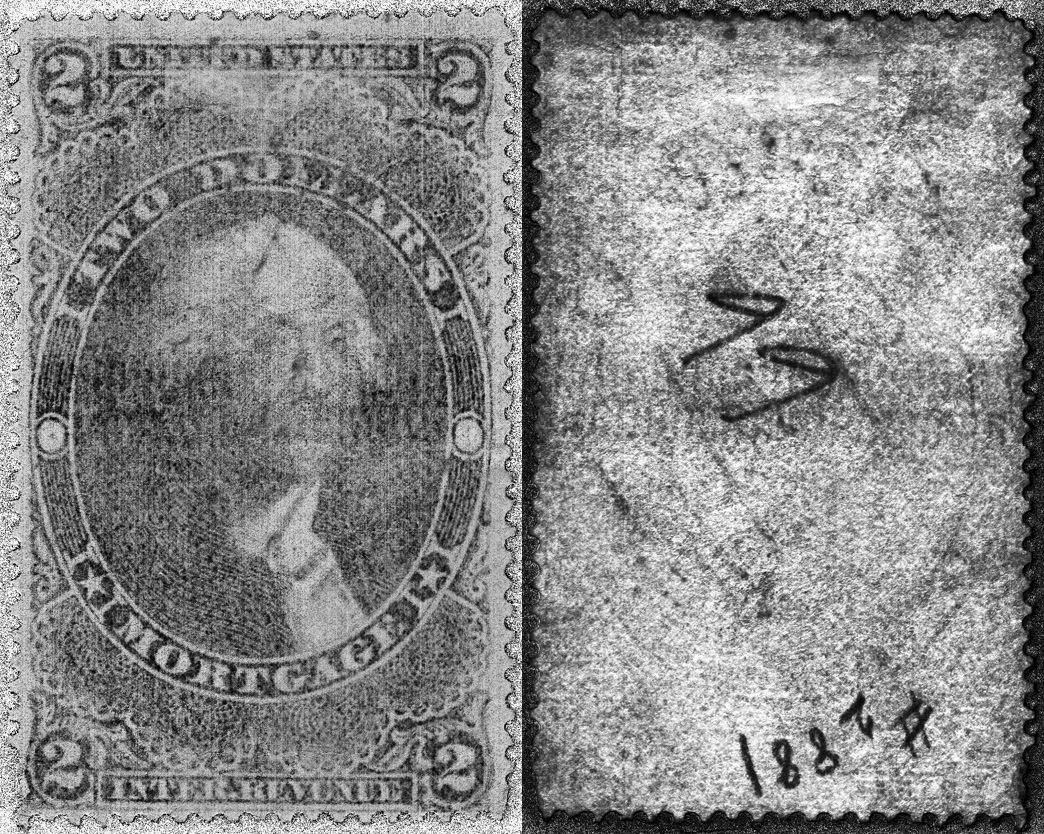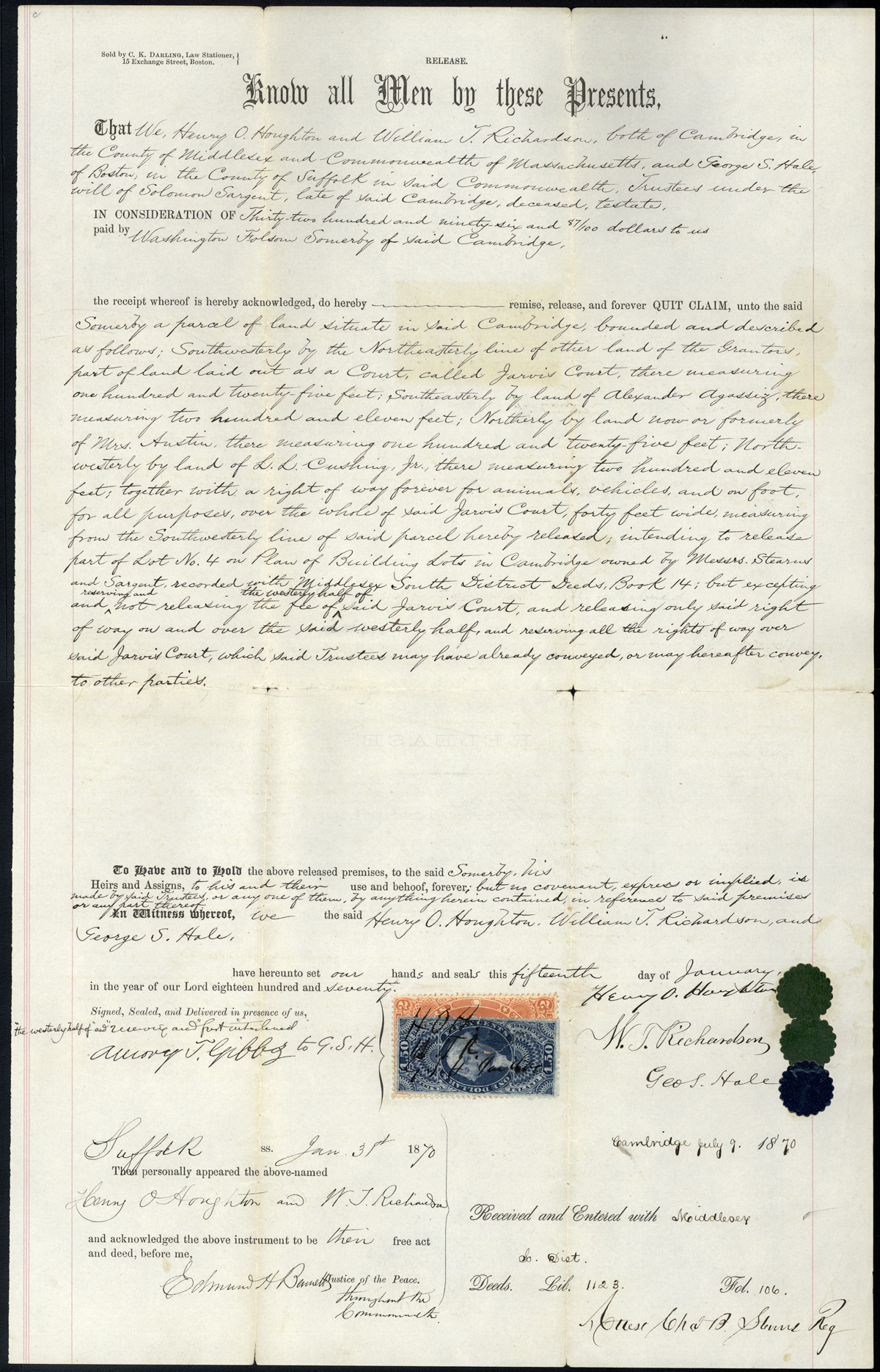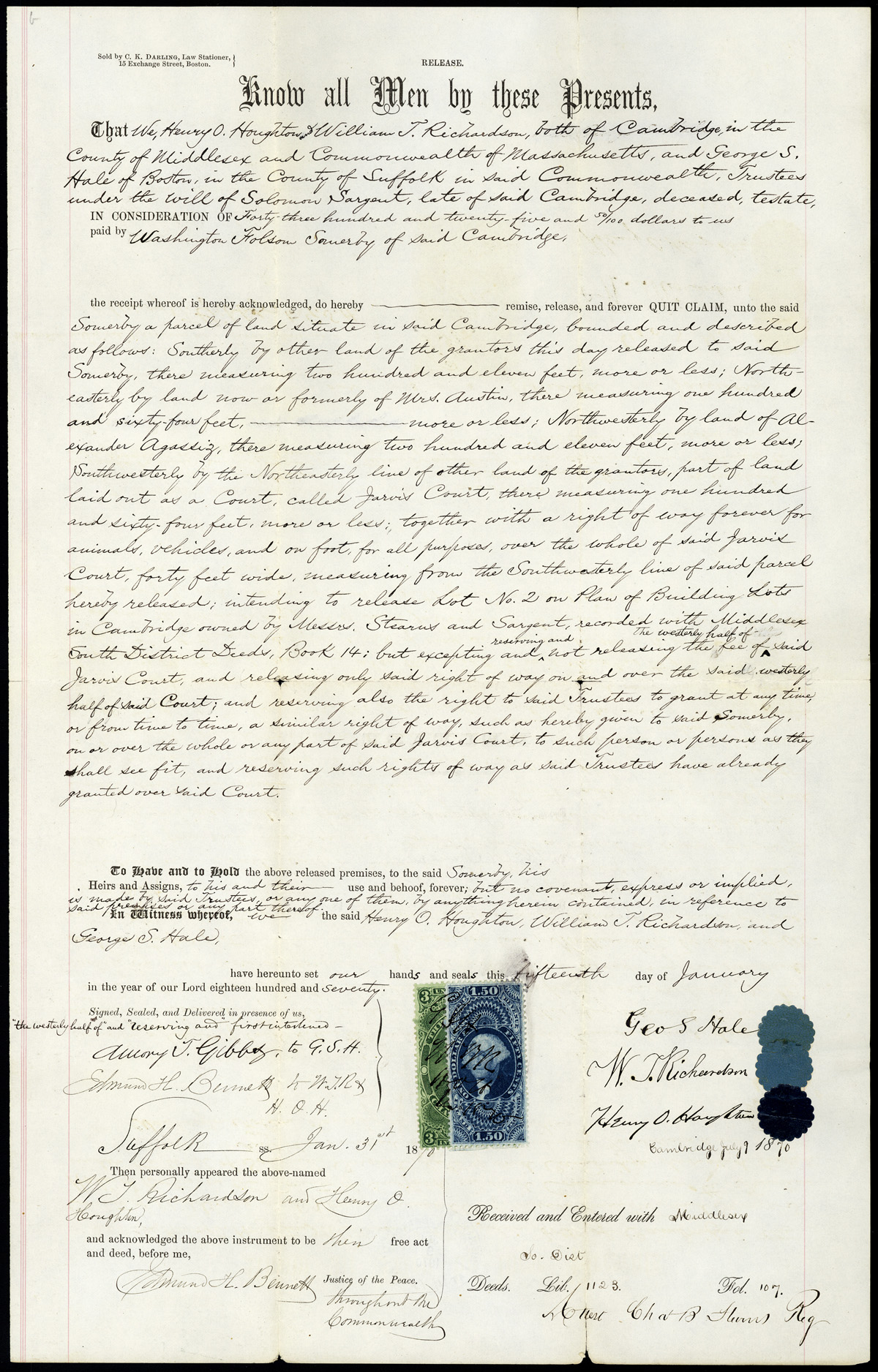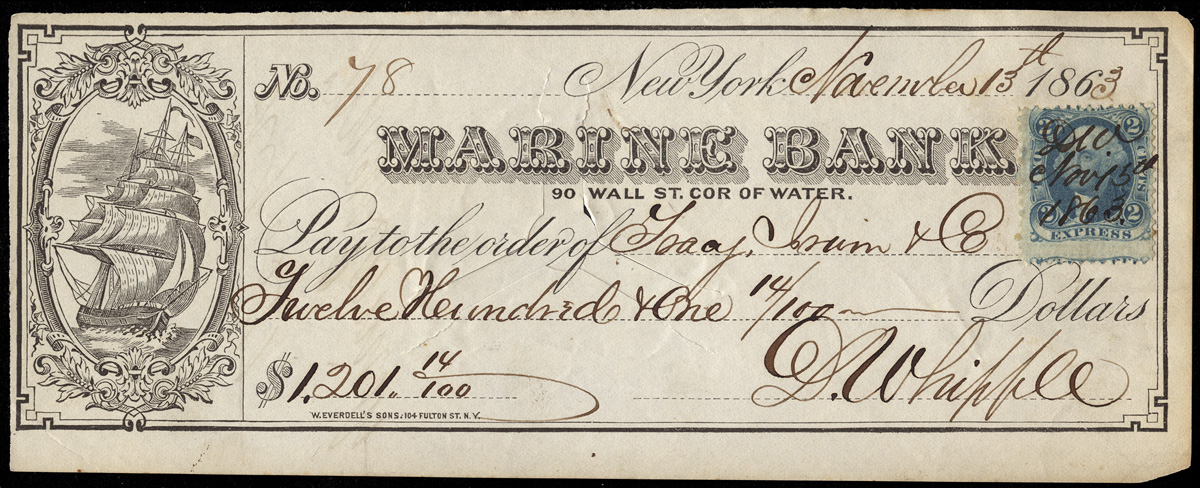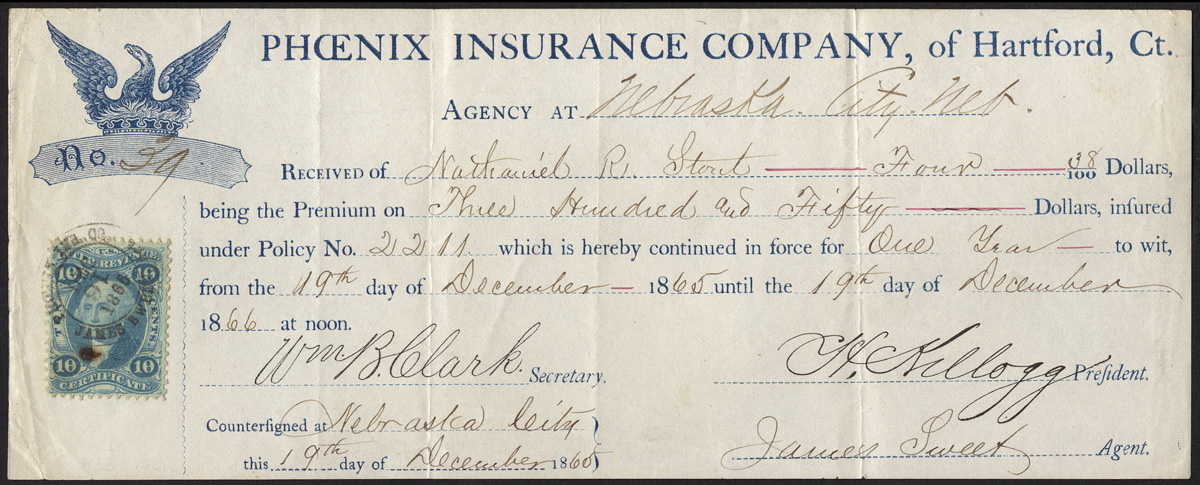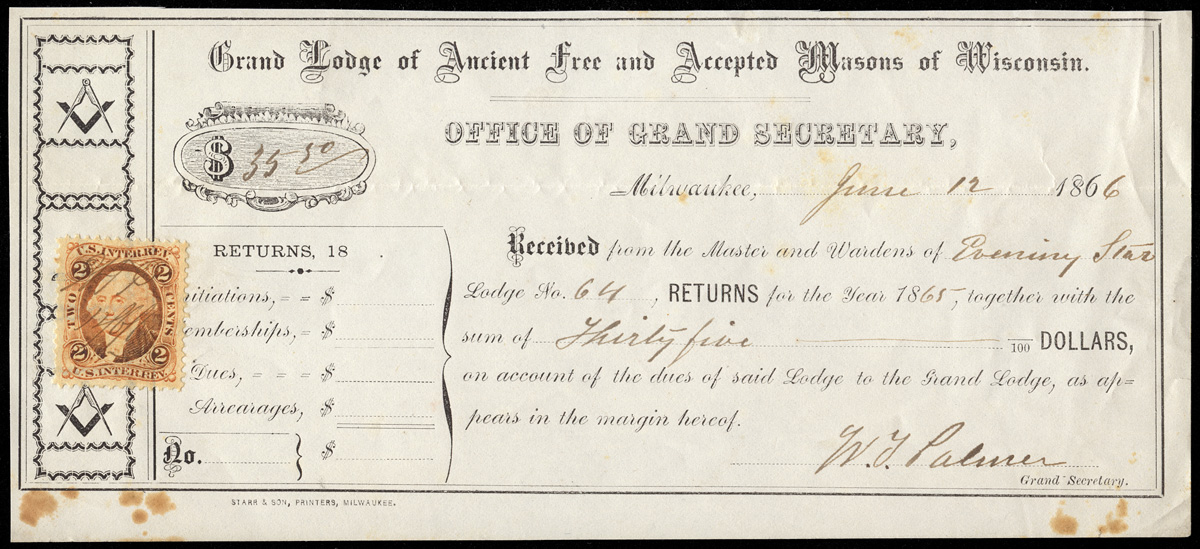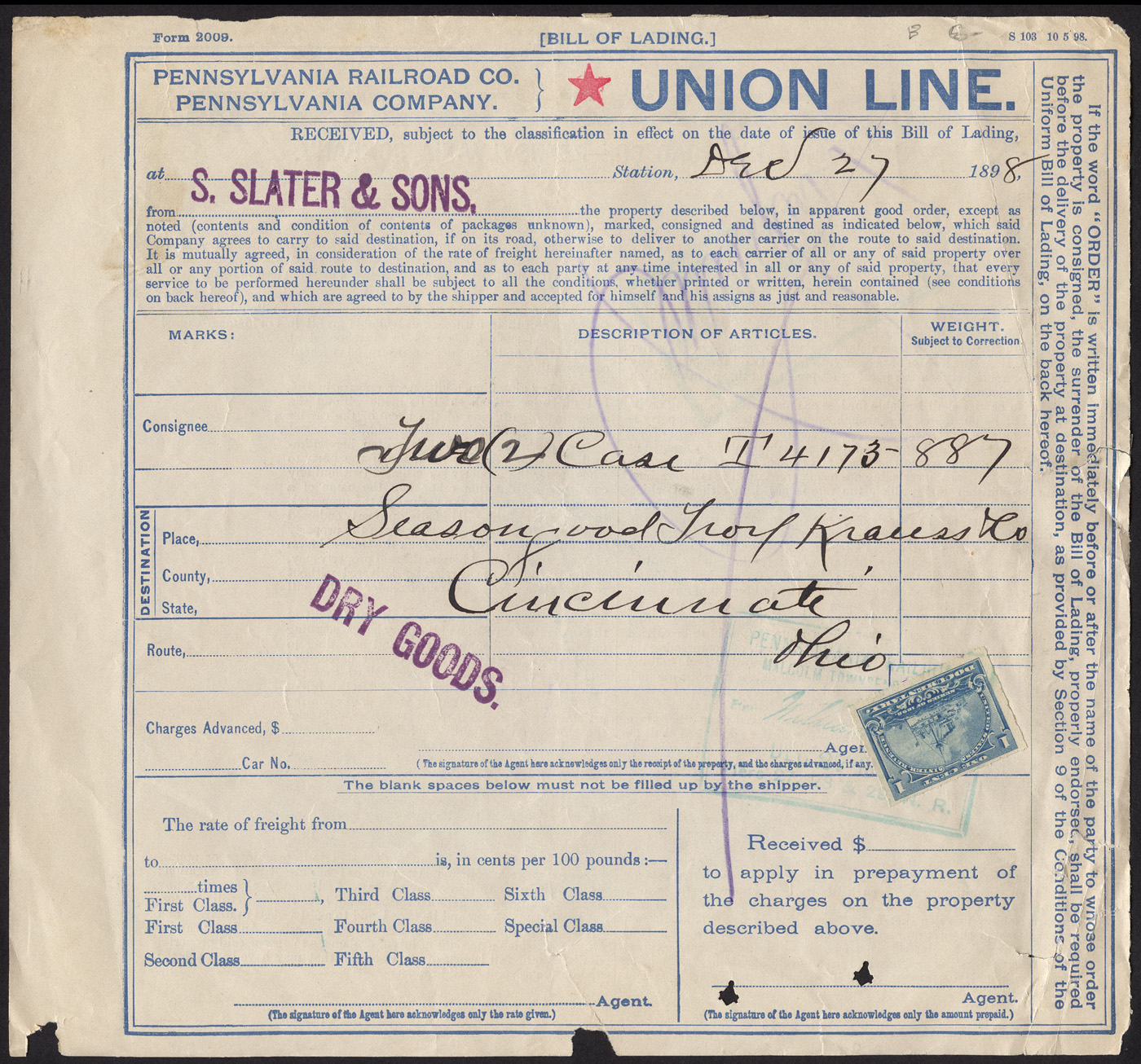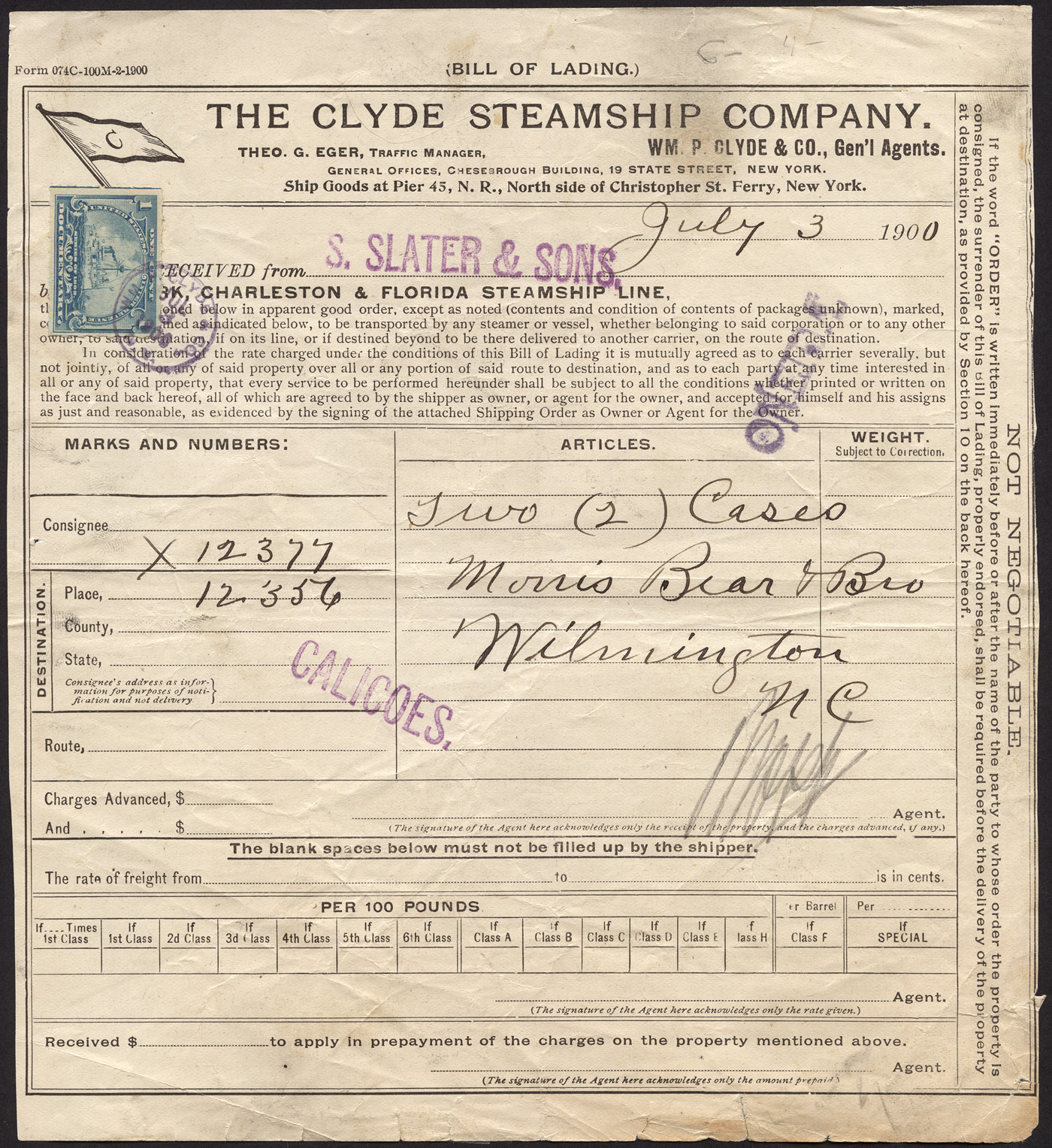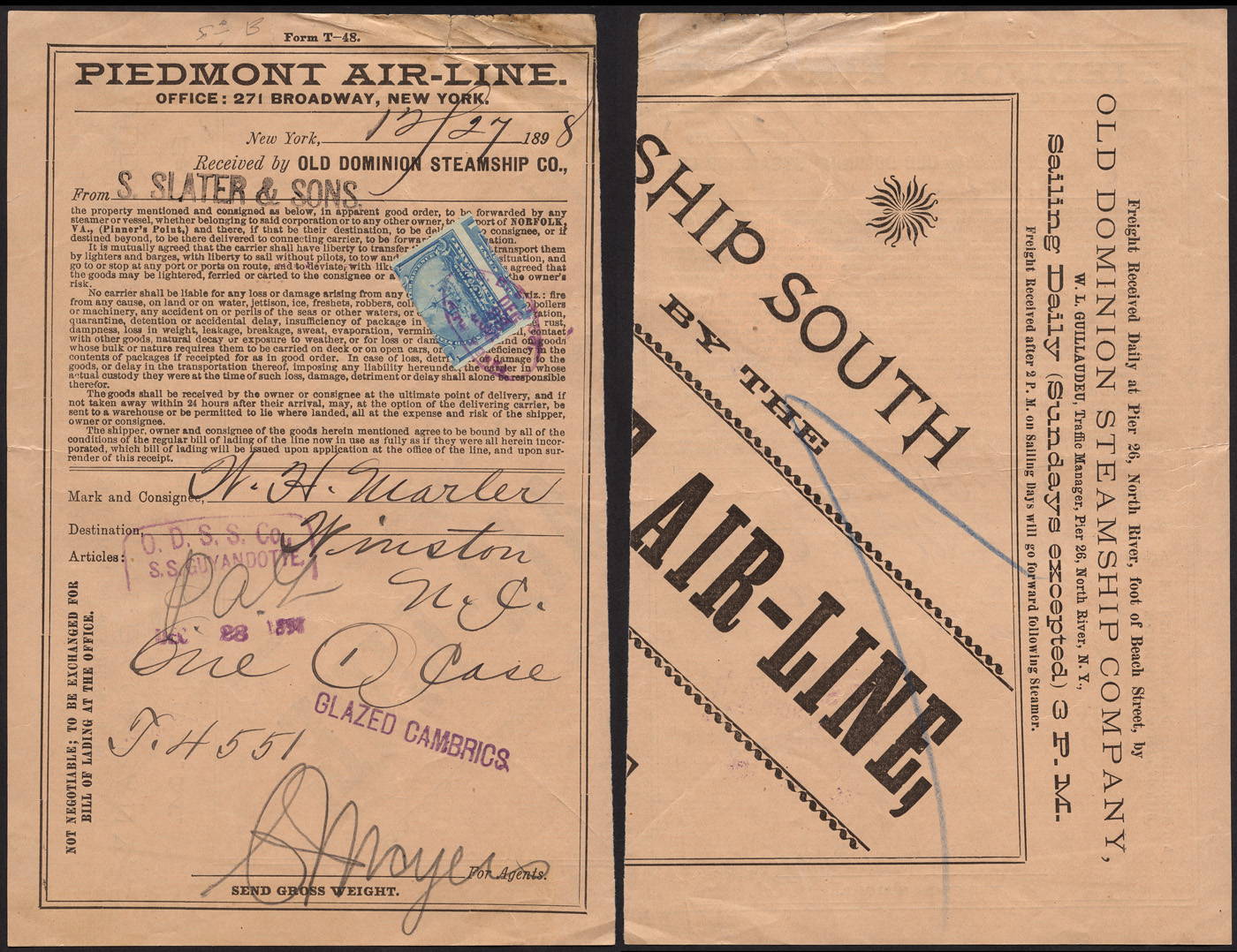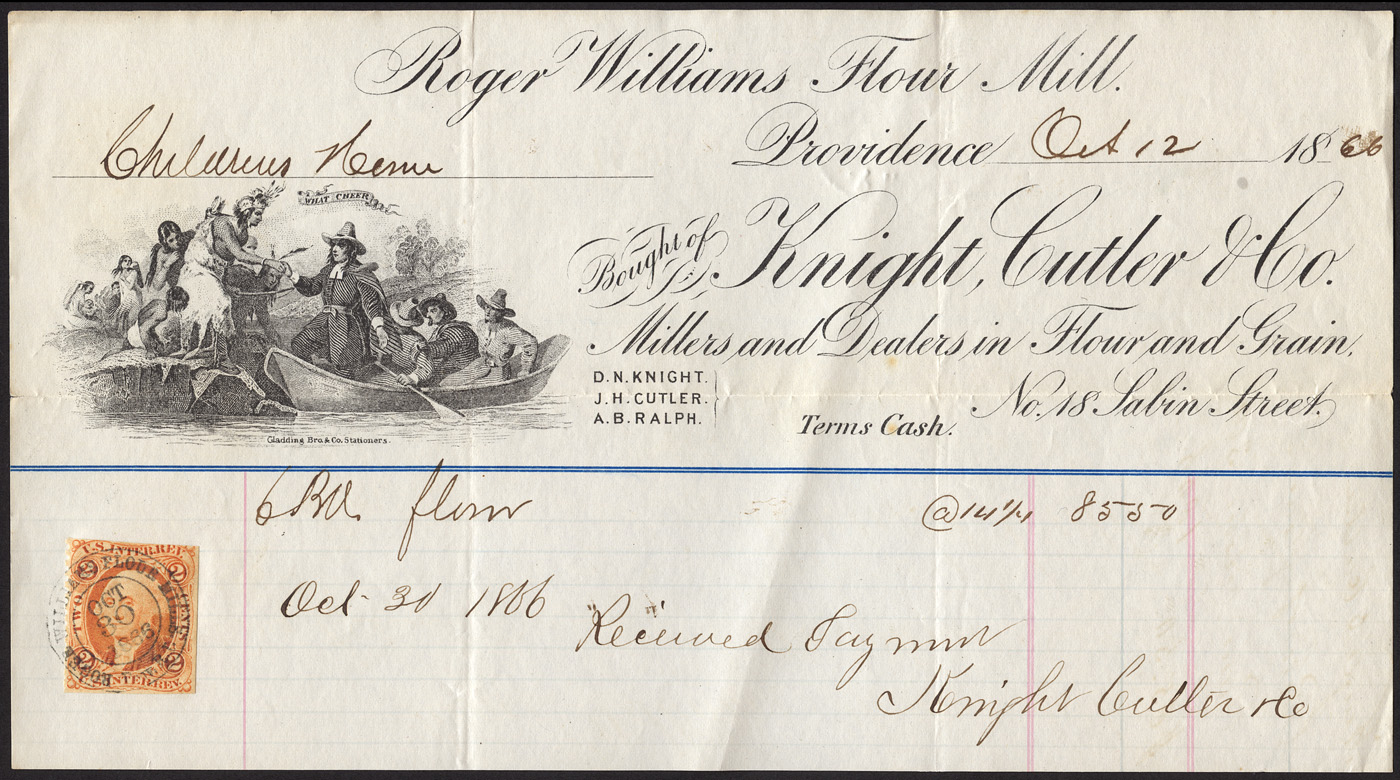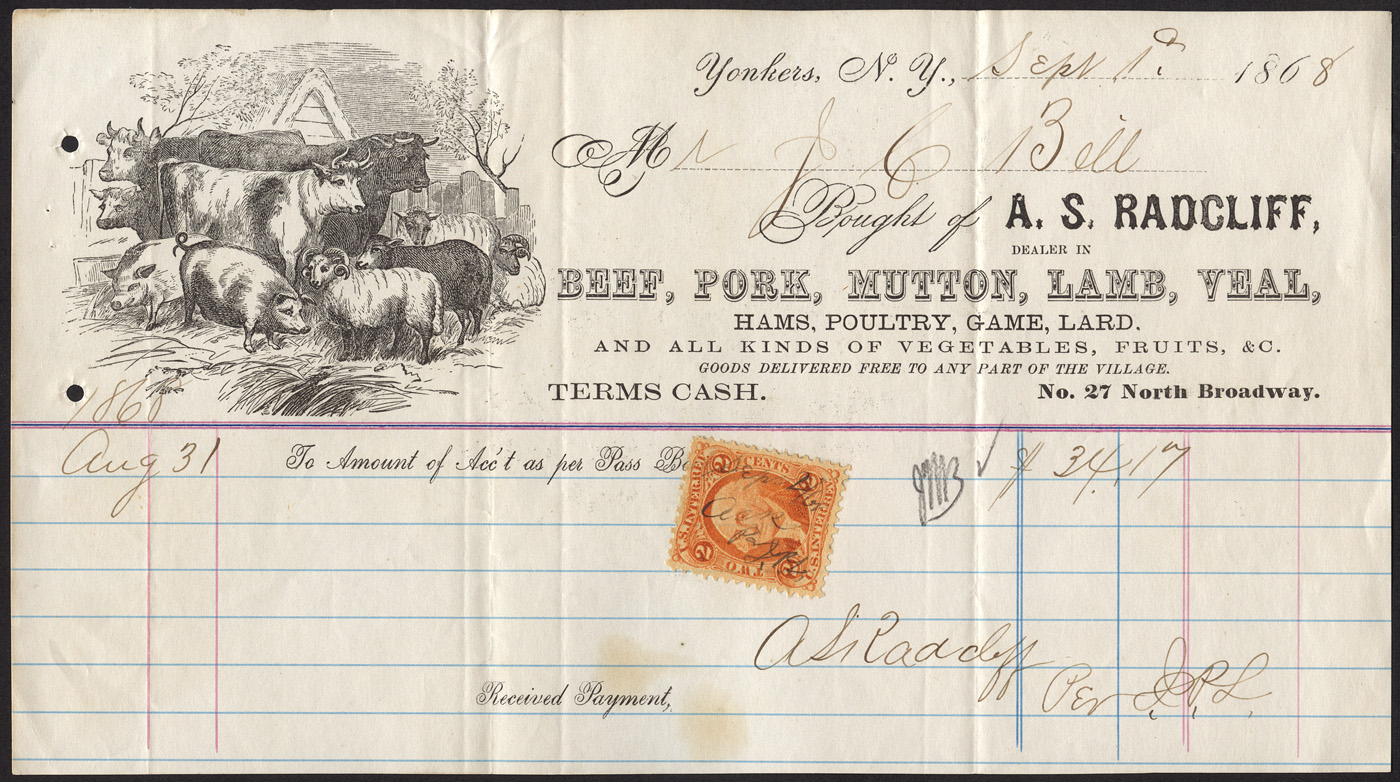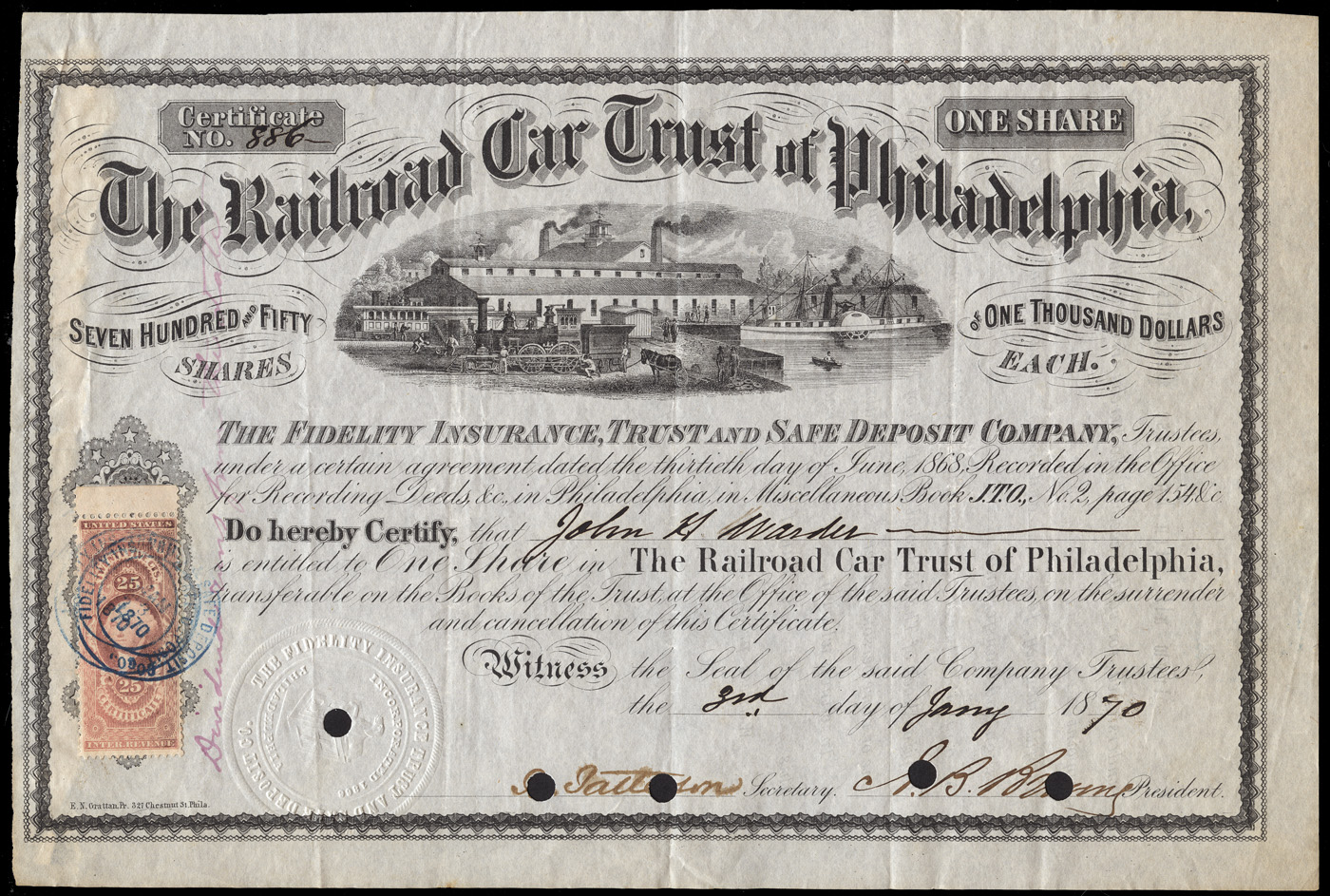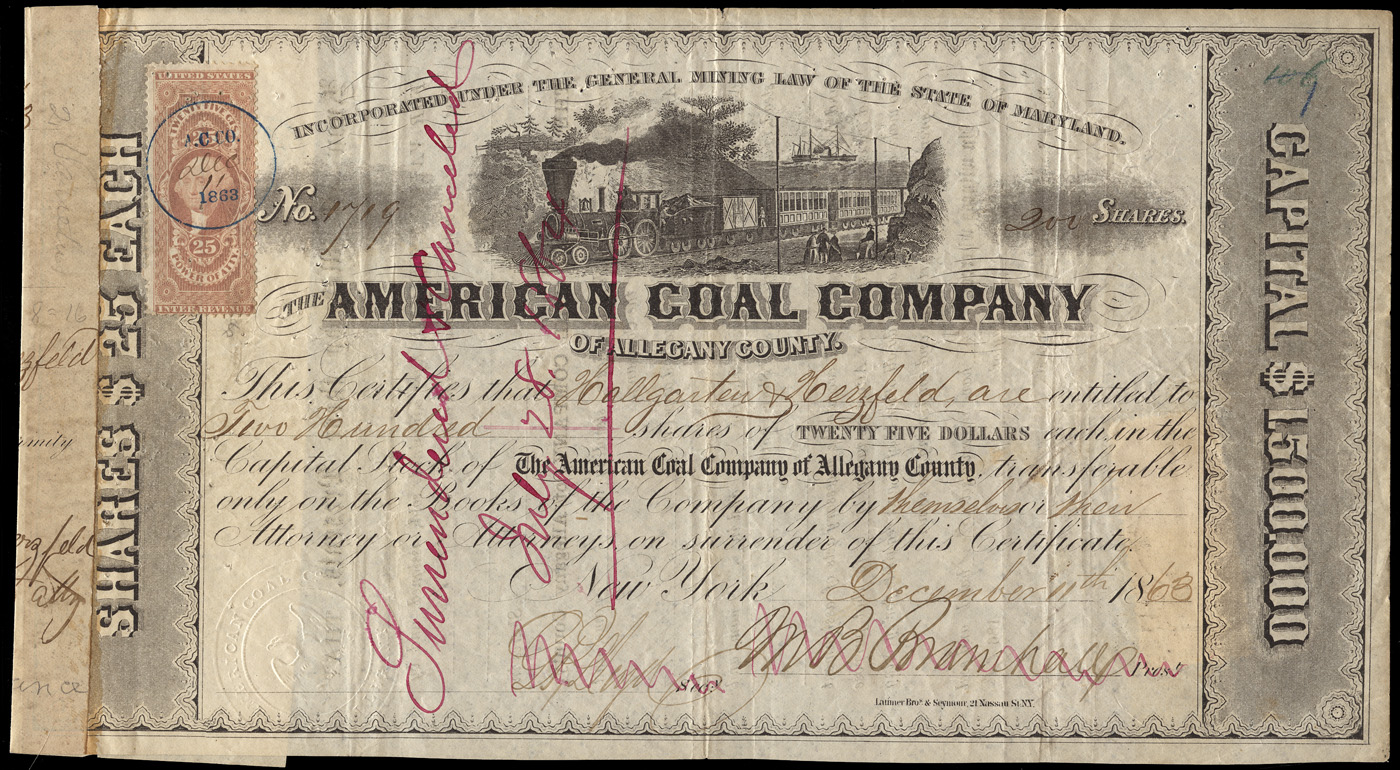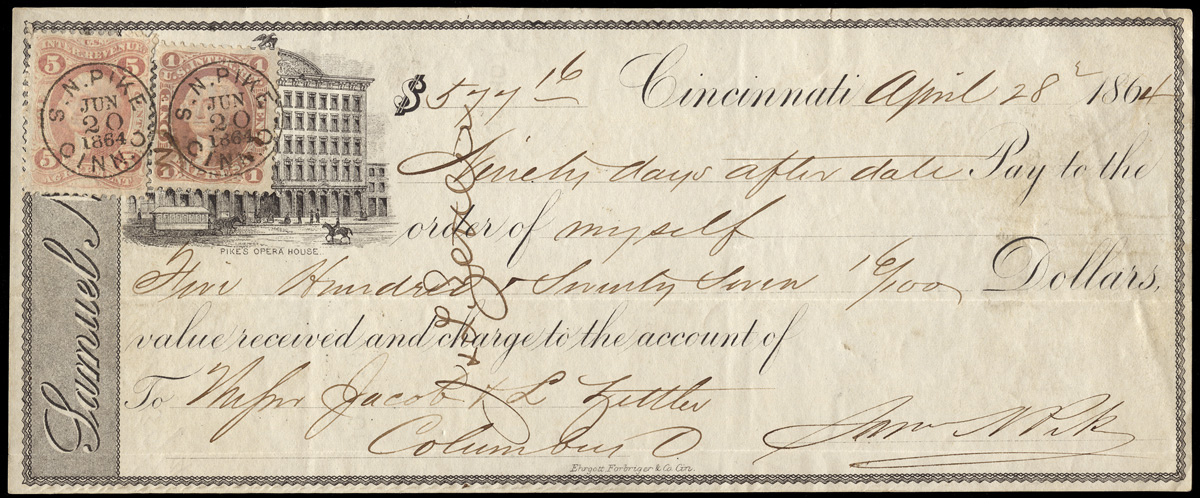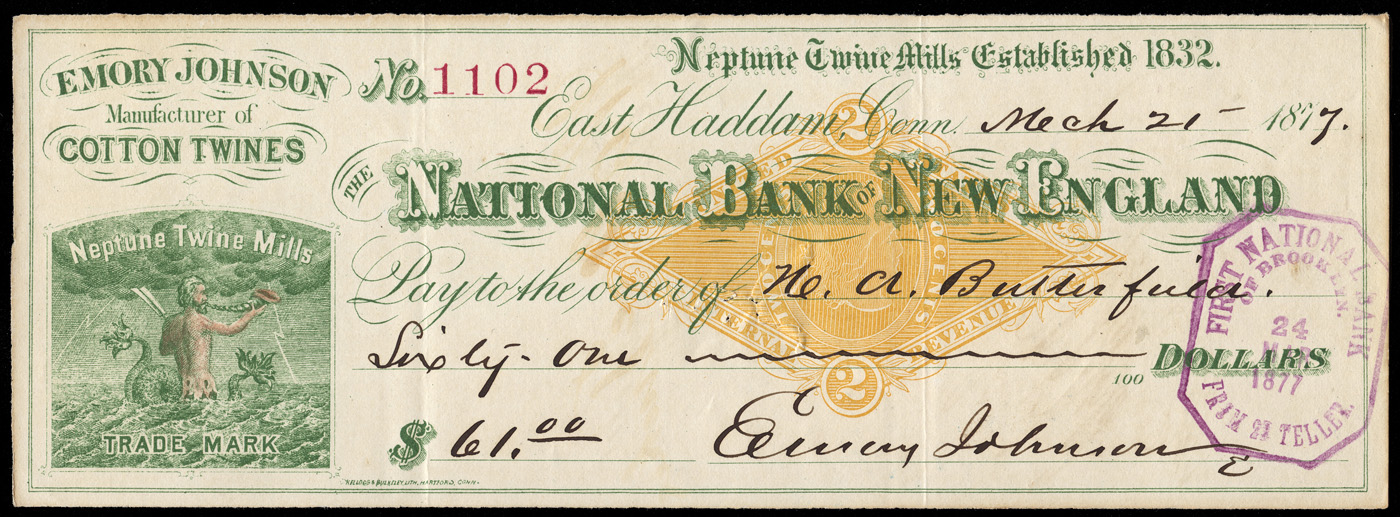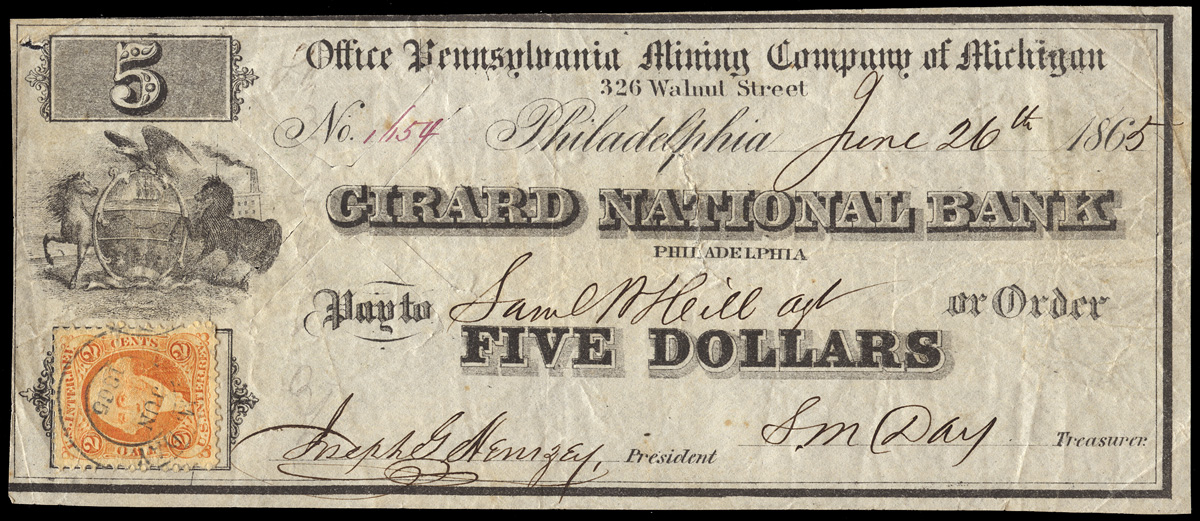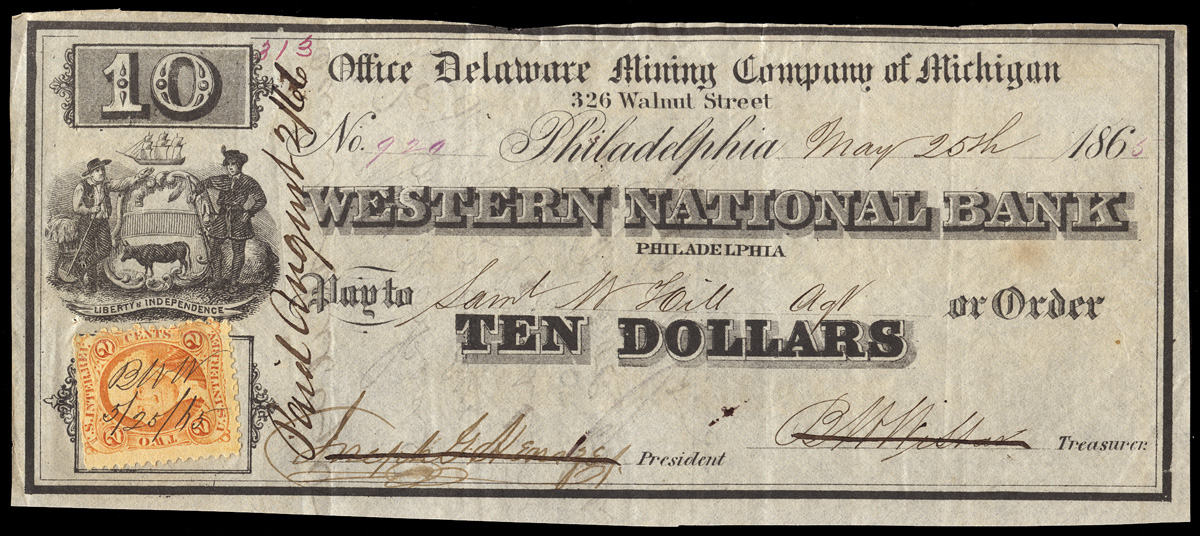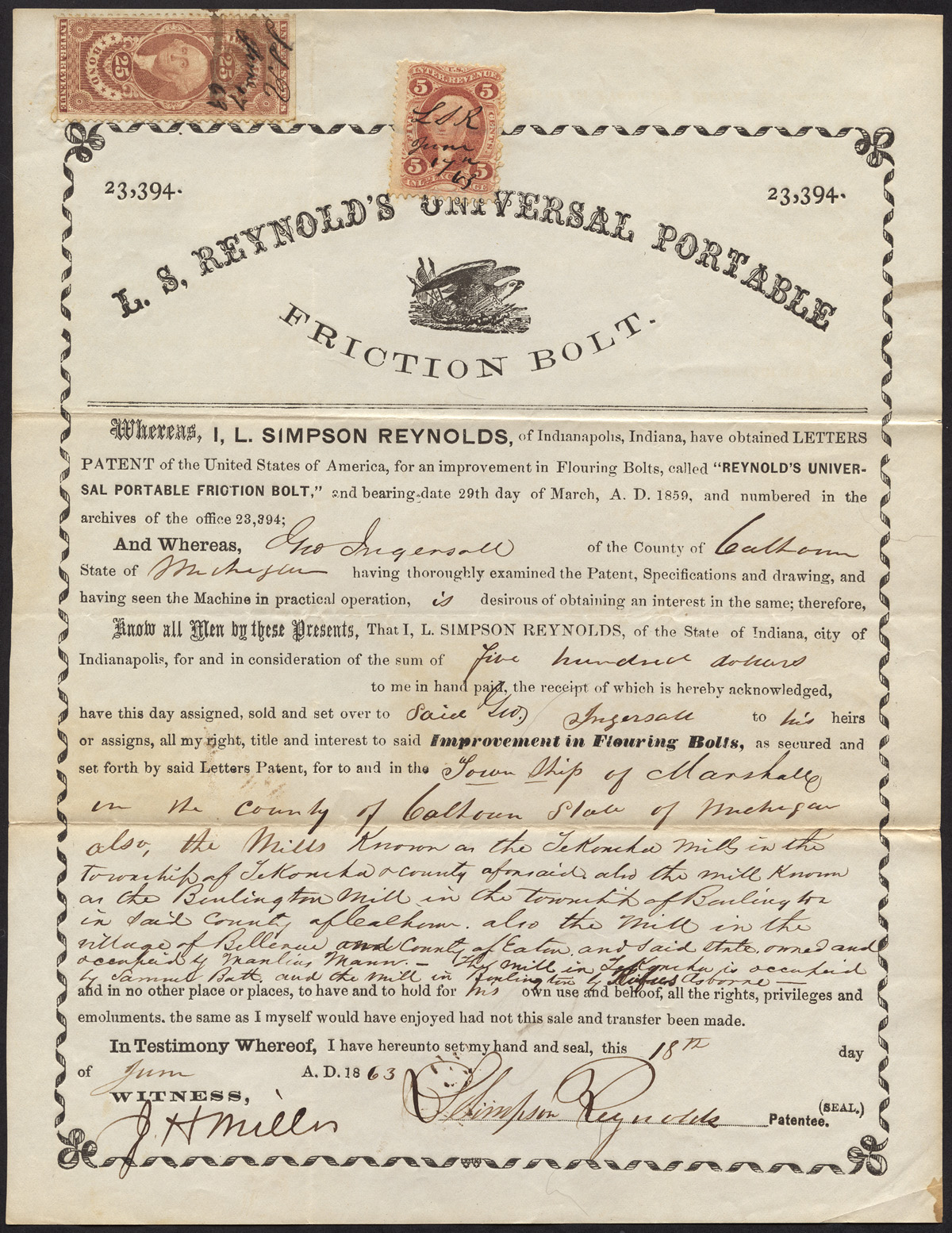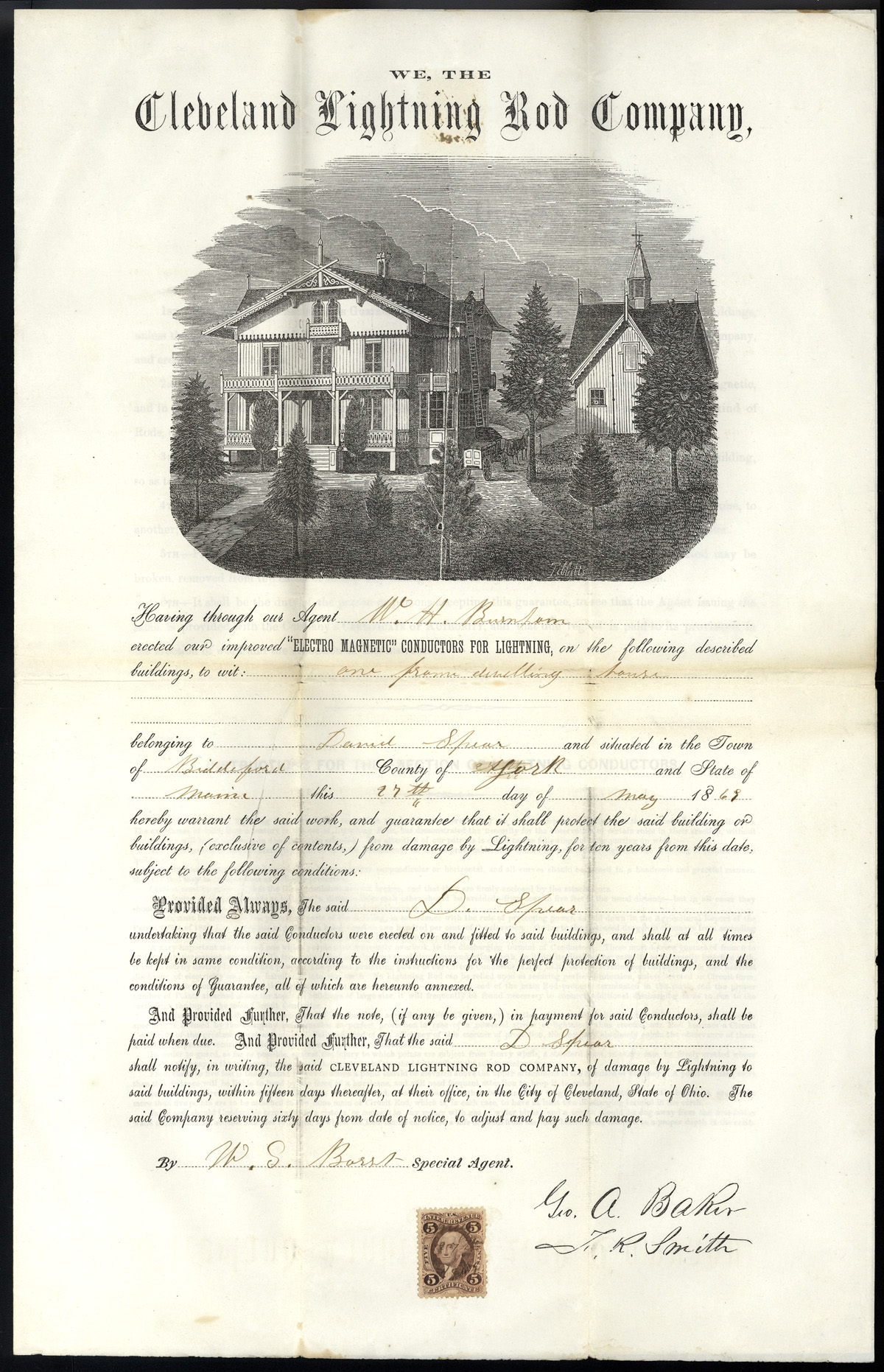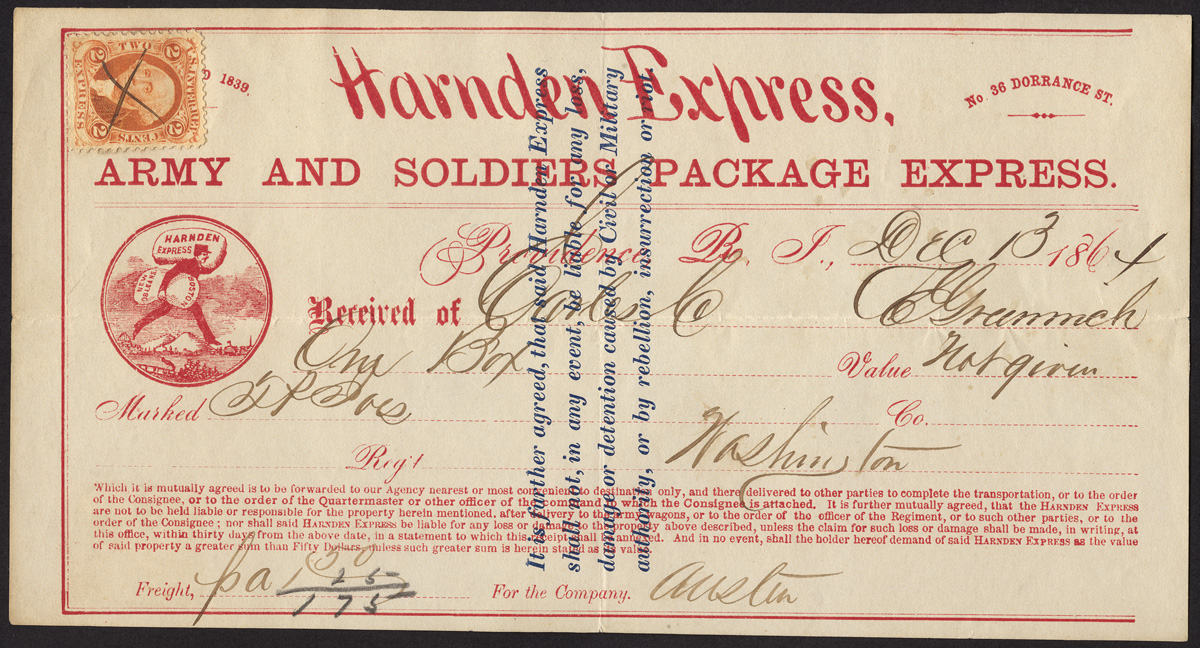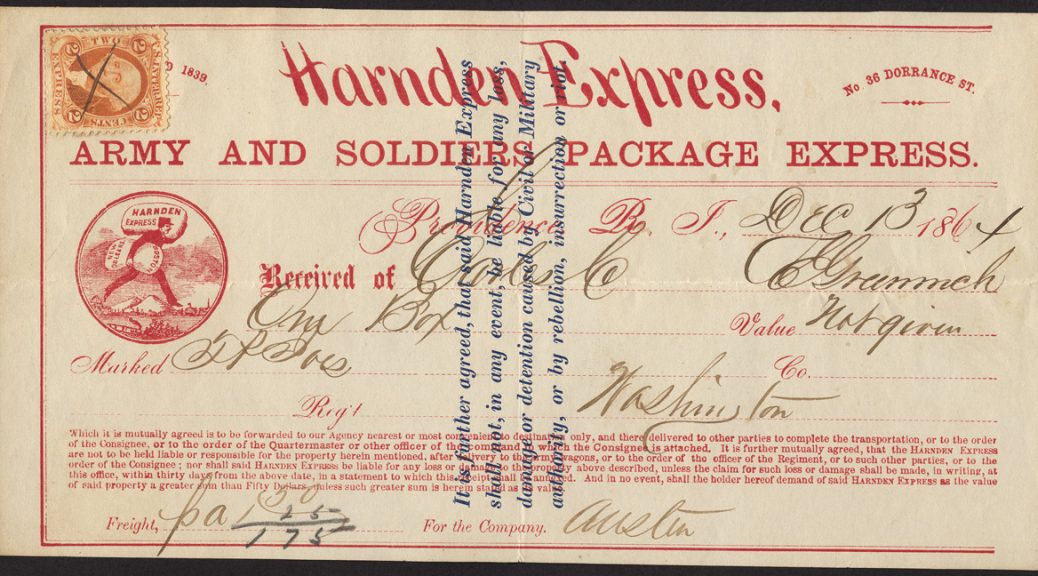
Revenue acquisitions from last week’s Indianapolis show
Here are my revenue pickups from this past weekend’s show in Indianapolis.
Let’s start off with the stamps… just a few of them.
First a nice jumbo example of R5c. Not bad for 20 cents. 🙂
Next, an RB2a double transfer, but a different one from the one I found a year or so ago.
Here are the diagnostics from the first one and then the new one.
I have read references to stitch watermarks on 1st issue revenues, but had never seen one in person that was convincing. I’ve looked at a few examples purported to be stitch watermarks, but they were always iffy, as in “if you squint real hard and look at this one section under the right light…” Scott does not make any mention of them. This R82c has about the boldest stitch watermark one could hope for, going right through the center of the stamp.
First an image of the front and back of the stamp, and then as processed by http://www.retroreveal.org to highlight the watermark.
Now on to the documents!
A pair of quit claim deeds dated the same day. Apparently the clerk who handled these liked to overlap the revenue stamps so everything would fit neatly.
A nice framed ship vignette.
Premium receipt from the Phoenix Insurance Co. with attractive vignette.
Masonic document.
Railroad bill of lading.
Two steamship bills of lading, both smaller shipping lines. The second has a great company oval cancel on a misperfed battleship, and a different second ‘O.D.S.S. Co.’ handstamp at center.
Two billheads with attractive vignettes.
Fairly scarce railroad stock certificate, per Cox.
Stock certificate from the American Coal Co. I have several examples of this handstamp cancel and wanted to obtain a document that verifies the attribution.
Samuel N. Pike was a builder of opera houses. You can see an opera house vignette at upper left. By my calculations the tax was underpaid by 3 cents.
Gorgeous check from the Neptune Twine Mills. I initially thought it was a two-color vignette, which would have been very unusual. The cost to print two-color small documents like this was rarely ever incurred. Upon closer examination, it appears to have been hand tinted. Striking effect regardless.
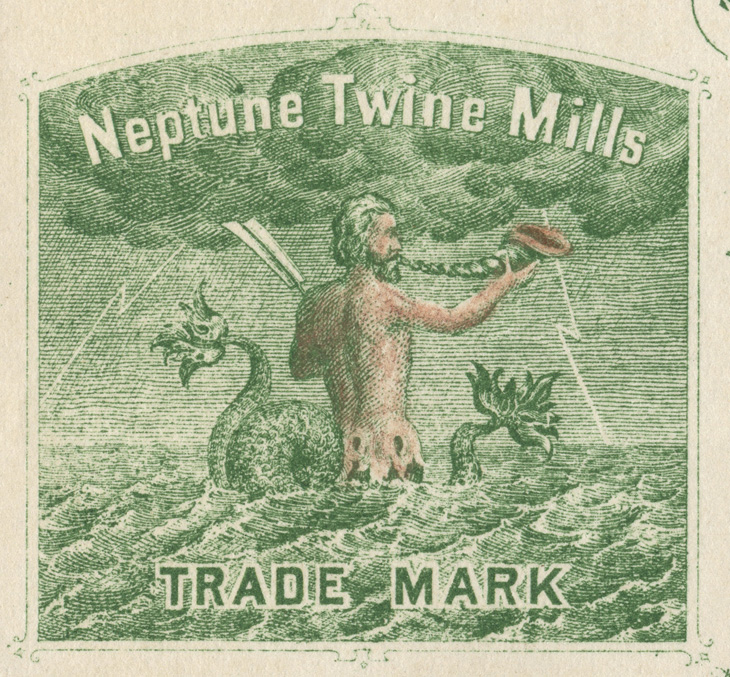
Two pieces of mining scrip from different mining companies, both payable to ‘Sam W. Hill Agt’. Samuel ‘Sam’ Hill was a member of the State House of Representatives, surveyor, associated with Douglas Houghton in surveying the Upper Peninsula and he managed the interests of many mining companies. Hill achieved legendary status for his colorful use of profanity which coined the expression ‘What in Sam Hill?’
Patent assignment letter for L. S. Reynold’s Universal Portable Friction Bolt (for use in flour mills). I’m not sure which transaction/document type this was taxed as.
Certificate of indemnity from the Cleveland Lightning Rod Company with a very large vignette. Very unusual industry. Since this was essentially an insurance policy, how common was it for a non-insurance company to be writing an insurance policy?
And last, but certainly not least, a document that I passed over for several years, but I always regretted passing it by, so this time I picked it up.
As attractive as as the document is aesthetically, I initially thought that the revenue stamp usage was bogus, as the express tax was rescinded in March of 1863. Mike Mahler schooled me on it though, saying that he believes it to be legit:
The express tax was in effect from October 1, 1862 to March 3, 1863. However, on August 1, 1864 a receipt tax was enacted, again requiring express delivery receipts to be taxed. The express companies lobbied heavily against the tax and on April 1, 1865 express companies became exempt from the tax.
That means express receipts showing stamped payment of a tax occured during a total of 13 months over the course of the Civil War. Non-stamped examples far outnumber stamped examples.
This document is doubly interesting in that it is the only example I have ever seen either in person or in pictures exhibiting the blue overprint which reads as follows:
It is further agreed, that said Harnden Express shall not, in any event, be liable for any loss, damage or detention caused by Civil or Military authority, or by rebellion, insurrection or riot.’
Presumably the company was taking excessive losses due to the Civil War, so they added this overprint to late print runs.
